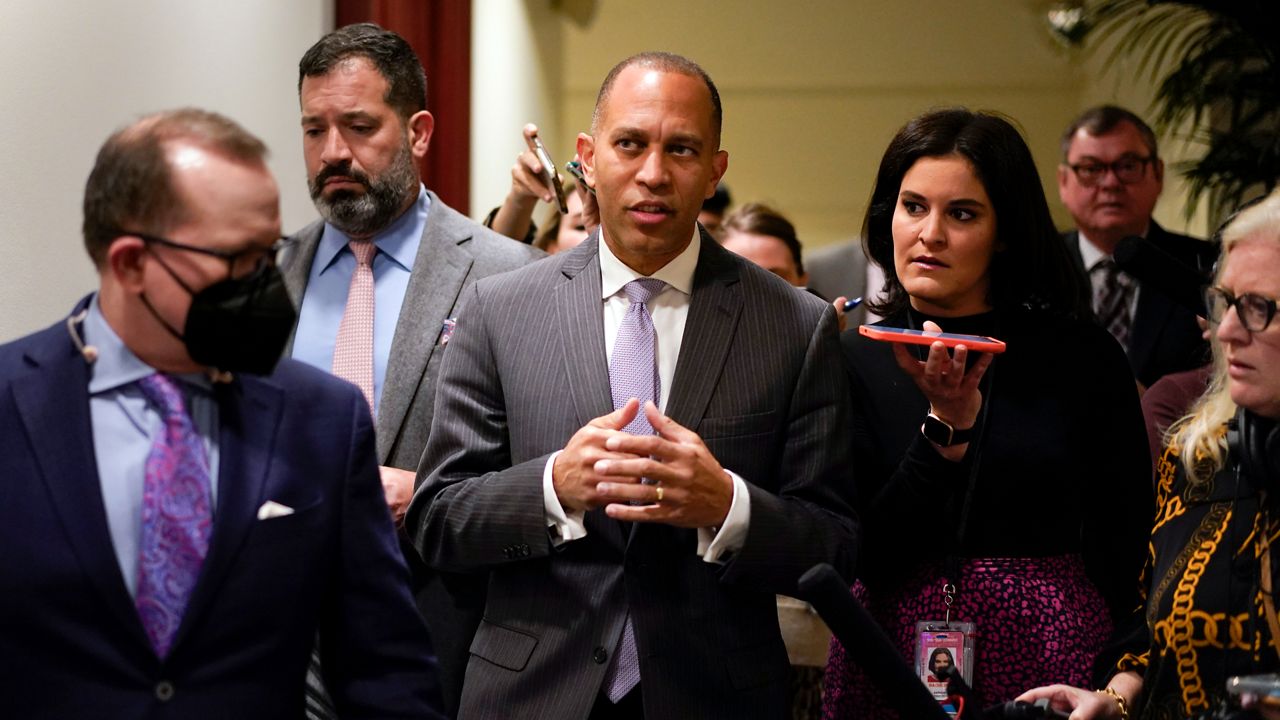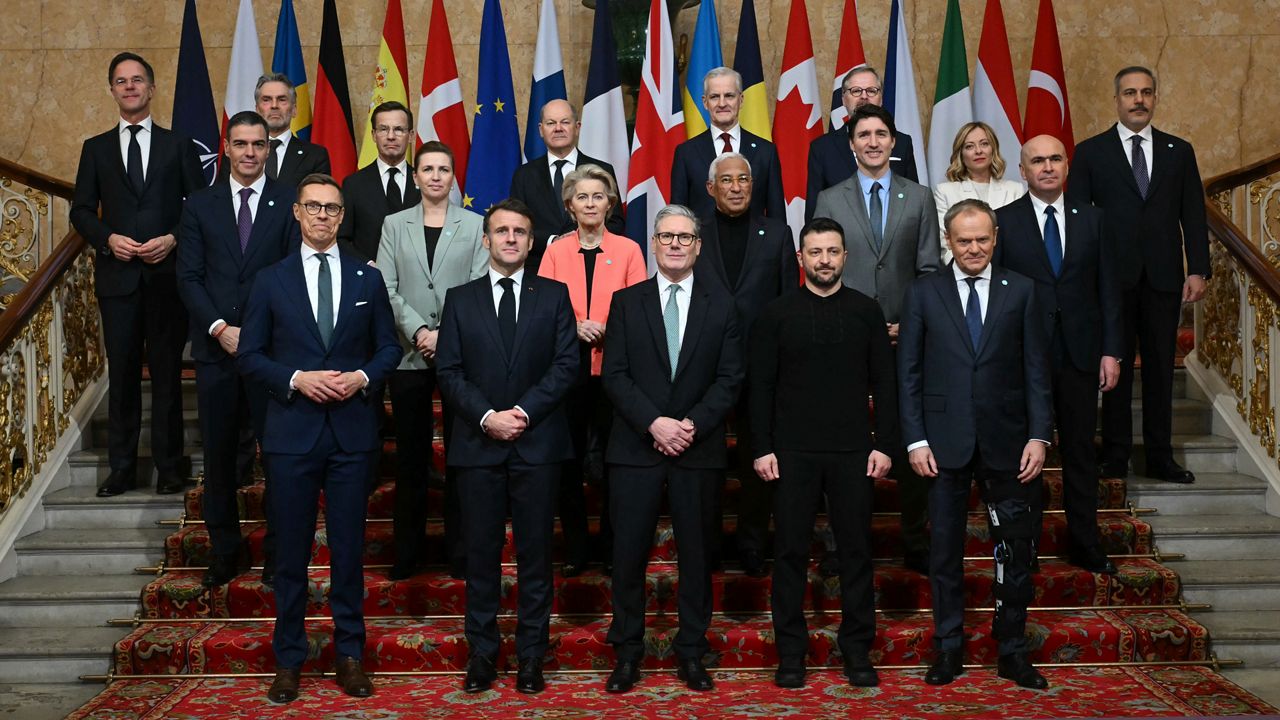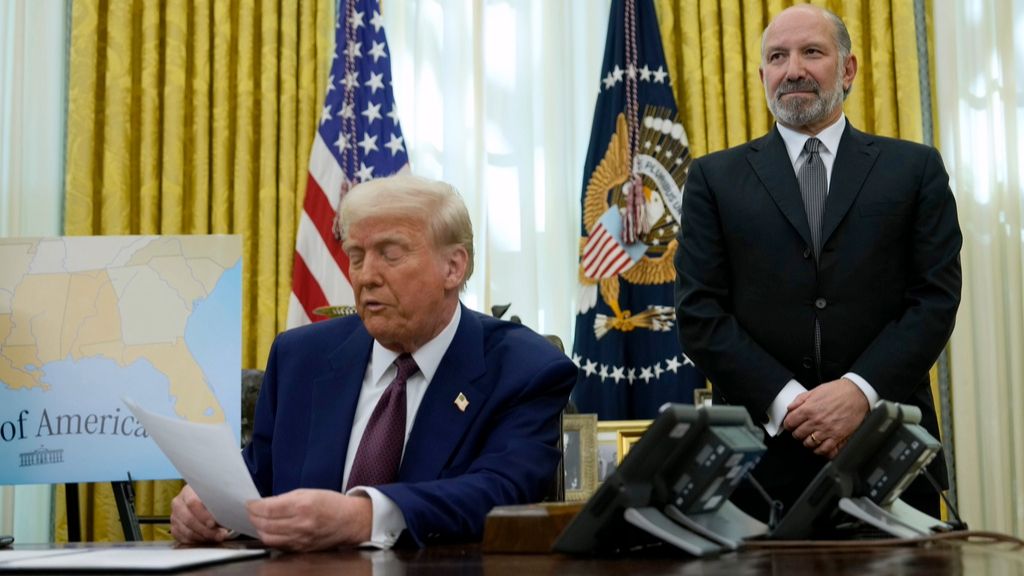House Democratic leader Hakeem Jeffries said on Sunday ‘informal conversations’ with Republicans are underway ahead of a speaker vote on Tuesday as Republicans continue to struggle to rally behind a candidate.
Rep. Jim Jordan, R-Ohio, won a majority of his GOP colleague’s approval in a vote last week, but he is still dozens of votes short of reaching a majority threshold in the whole of the House, with all Democrats expected to vote for Jeffries. Rep. Steve Scalise, R-La., previously won a majority of House Republicans by a greater margin than Jordan, but dropped out of contention after he did not see a path forward to the speakership.
“There are informal conversations that have been underway. When we get back to Washington tomorrow, it's important to begin to formalize those discussions,” Jeffries said on NBC News’ “Meet the Press” on Sunday. “It's time to end the Republican civil war so we can get back to doing the business of the American people. And we as House Democrats are committed to finding that bipartisan path forward in a meaningful way."
The New York Democrat said he did not have demands of Republicans willing to work with him on a “bipartisan governing coalition,” but that any negotiations would need to center on ensuring bills with wide swaths of support from both parties could be voted on without obstruction from “extremists” on the GOP’s hard-right. Members on the party’s furthest right reaches, particularly Florida Rep. Matt Gaetz, used a deal cut with then-Speaker Kevin McCarthy to push their agenda to the forefront until they were no longer satisfied with McCarthy’s leadership. Gaetz and a handful of other Republicans voted with Democrats to end the Republican leader’s tenure as speaker, the first time such a vote has been successful in U.S. history.
“My Republican colleagues have a simple choice,” Jeffries said. “They can either double or triple down on the chaos, dysfunction and extremism or let's have a real conversation about changing the rules of the House so we can work in the best interest of the American people.”
A bipartisan unity government in the House is unprecedented in modern U.S. history, though more common in multiparty parliamentary systems throughout the world. Jeffries said he did not have a specific candidate in mind from either party to lead the hypothetical coalition.
Jeffries emphasized the wars in Ukraine and between Israel and Gaza as priorities that the House needs to address, with aid packages and other initiatives unable to be considered until a new speaker is elected. A government funding deadline, pushed back by a 45-day stopgap measure last month, is rapidly approaching as well.
But Jordan, a right-wing hardliner himself, did not seem open to working with Democrats. The Ohio congressman, whose leadership of Republicans is far from certain beyond Tuesday, instead urged his GOP colleagues to rally around him.
“The differences between Republicans and Democrats in the House far outweigh our differences in the Republican Conference,” Jordan wrote on X, the social media platform formerly known as Twitter. “This country and the GOP Conference cannot afford us attacking each other. It’s time to get to work.”








